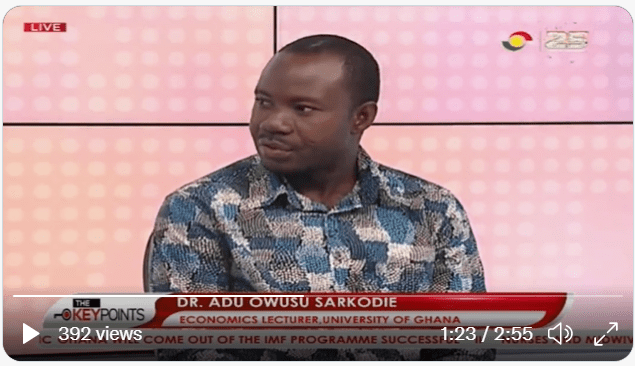Lecturer at the Department of Economics of the University of Ghana-Legon Dr Adu Owusu Sarkodie has proposed the use of revenue from property rates as an alternative source of funding for the Free Senior High School Policy.
Dr Owusu Sarkodie conceded that the Free SHS Policy is good and can be sustained, only that all responsible for its sustainability are running away from the “responsibility to look for serious financing” to keep it running.
He was speaking at the National Level Dialogue organised by TV3 on Wednesday, August 23 on the Free SHS Policy.
It was on the theme: ‘Free SHS In Perspective: Problems, Progress and Prospects’.
Dr Owusu Sarkodie stressed that the Policy is not the cause of the current economic troubles of the country as indicated by some including the opposition.
He said what must be done to keep the policy from, even, review is getting “an extra funding elsewhere”.
For him, the property rates or taxes is one sure avenue to get enough funding for the Policy.
“If we were serious as a country to provide funding for Free SHS, we can raise GH¢12 billion to finance the programme,” he pointed out, stressing that that amount – from just one year of collection – can fund the policy for three consecutive years.
That, he said, will ensure that the rich, who own most of the property in the country, will contribute significantly to the Policy.
The renowned economist also cited tax exemptions, subventions, revenue from the extractive sector and the intensification in the registration of citizens via the Tax Identification Numbers (TINs) as other alternative sources of funding.
But speaking earlier at the Dialogue, the Executive Secretary of the Institute for Education Studies (IFEST-Ghana), Dr Peter Partey Anti, said the volume of investment being made into the Policy makes the future bleak.
“The future is bleak. The future is bleak because [the Free SHS Policy] is not sustainable.”


